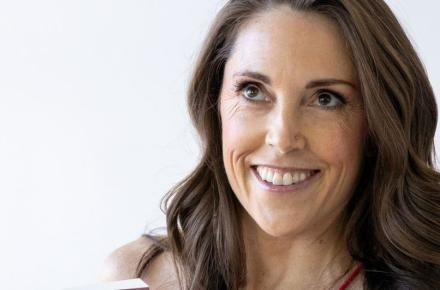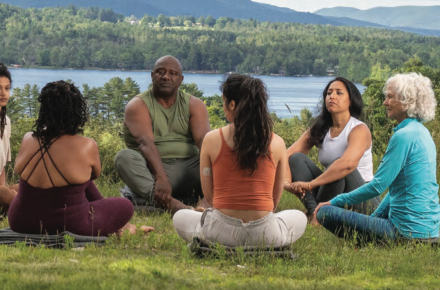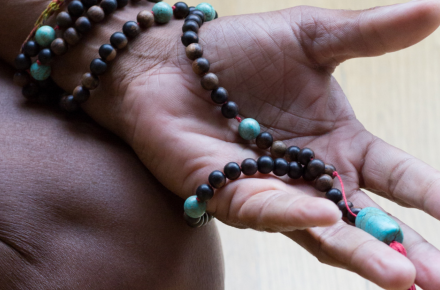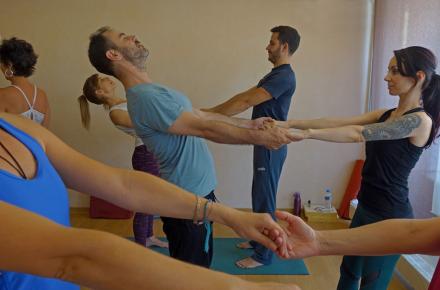Recovering from Divorce

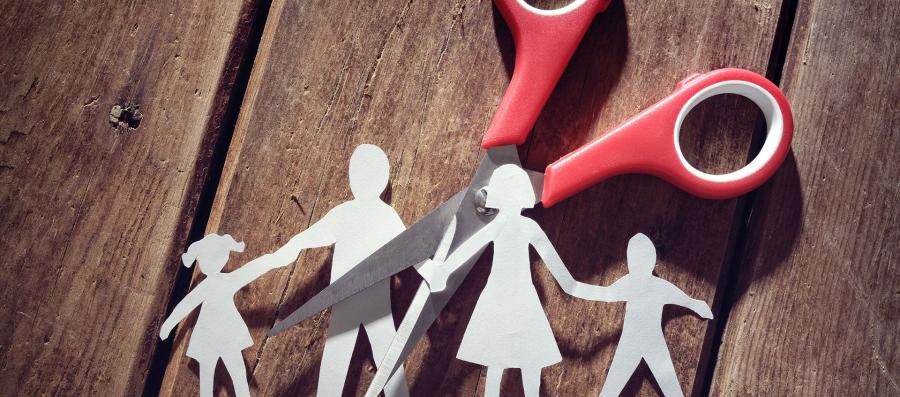
After 18 years together, my ex-husband and I separated in 2008. We divorced in 2010. It was the most painful experience of my life, bar none.
Relinquishing the safe and peaceful home I’d shared with the man who’d loved me to the marrow of his bones for almost two decades shook me to my core. I’d sob at the supermarket as I passed by the cashews—his favorite—realizing that I didn’t need to buy them anymore because my husband wasn’t at home anymore. I’d ruminate over whether we were doing the right thing. If only I hadn’t done this, or if only I had done that, could I have prevented our demise? I was decimated by grief. My stress was all-encompassing … but it wasn’t unique.
“Divorce is one stressor that has the power to impact almost every important area of life,” says clinical psychologist Jeff Zimmerman, a Kripalu presenter. “You can have tremendous uncertainty about when you’ll be with your children, where you’ll live, how much money you’ll have, what your future will be like, and what will happen in your relationships with extended family and friends. Divorce can also have a profound impact on self-esteem, as the ending of a marriage can feel like a major failure on many levels—even if you’re the person initiating it.”
“With all the stress and uncertainty, people often have clinical levels of depression and anxiety,” adds Lauren Behrman, also a clinical psychologist, who co-teaches Kripalu programs with Jeff. “This can impact sleep and appetite, as well as concentration and energy. The stress of divorce can also cause small issues to appear large, further impacting the legal process and finances. Family savings can be depleted by legal fees and by the costs of establishing another household. Many divorce professionals say that when people go through divorce, you see good people at their worst.”
The well-worn stat still holds true: According to the American Psychological Association, about 40 to 50 percent of married couples in the United States divorce, and the divorce rate for subsequent marriages is even higher. “Separation and divorce have been said to be two of the three greatest stresses, only surpassed by the death of a spouse,” Jeff notes. “Divorce can impair your ability to work, parent effectively, and have future relationships. That’s why actively pursuing divorce recovery is so important.”
Persistence, mindfulness, and focusing on your own internal response are some of the hallmarks of divorce recovery, according to Lauren. Allowing yourself the time and space to feel all of your emotions and process the grief around the death of your marriage is especially important. “In order to achieve a full emotional separation,” she explains, “you need to reach a place of acceptance of the loss. Unfortunately, most of us put our focus and blame on the other person—what they have and haven't done, the mistakes they’ve made, and how they have (and perhaps continue to) let us down. This keeps us focused on who we’re moving away from, rather than on where we’re going and our own future and emotional recovery.”
Jeff acknowledges that shifting away from the dance of conflict isn’t easy, however. When children are involved, it requires acknowledging that “winning the battle” isn’t as important as working with your child's other parent to address the issue as effectively as possible. Another powerful piece of divorce recovery is transforming the negative narrative we’re apt to create about ourselves on the heels of a divorce. We may ask ourselves, Why in the world did I pick this person? or Why did I do what I did? or Why did I so often let my partner get away with this or that? “Often the narratives about our divorce have to do with the failings we see in ourselves,” Lauren explains. “They paint us as defective and a victim, keeping us locked into a role of helplessness or, conversely, locked into battle with the former partner.”
Lauren says that healthier narratives are not just platitudes, but rather deeper understandings and compassionate responses that we might give a dear friend in the same situation. “You might say to yourself,” Lauren explains, “‘I picked this person for a myriad of reasons. I did the best I could, but ultimately the relationship was not able to survive in a way that worked well for us both. The ending of this relationship opens up paths that are yet to be taken for my growth and future.’ Statements such as this avoid blame, criticism, and self-loathing. Instead, they speak to a more understanding and loving view of yourself, a more organic demise of the marriage, and hope for a better tomorrow.”
Here are four practices that can support that shift.
Mindful Movement
“Practices like yoga, qigong, and tai chi can help us get grounded in our bodies and take our focus off our thoughts,” Lauren says. “Being aware of our bodies and practicing these postures and forms can free some of the tension we’re holding, which is especially important if our lives are in disarray during and after divorce.”
Journaling
Journaling provides a vehicle to express thoughts and feelings, while helping us look at them in a more compassionate manner. “When we write freely and without judgment, we not only experience the feelings that flow as we write,” Lauren says, “but we can also create new and healthier narratives. Writing down our thoughts can also help us organize them and prepare for difficult conversations, or for doing our own internal grief work of letting go.”
Meditation
Meditation and yoga nidra can help quiet the mind and relax the body, easing the stress of divorce, as well as the recurrent issues that can spring up long after the divorce is finalized. “Practices like this can help you feel more centered and keep the stress response from getting out of hand,” Lauren notes. “They create balance and give you the ability to respond in a thoughtful rather than reactive manner. Learning to quiet your mind by focusing on your breath is a tool that you can access whenever you need it.”
Soulful Music
“Soulful music can be a wonderful entry point into feelings,” Lauren says. “While popular music often elicits feelings of sadness, which can be important when you're grieving a relationship, other types of music can be inspirational and empowering. Listening to carefully selected music can open you up and help you manage your emotions in constructive ways.”
The work of grief recovery varies in length for everyone. Jeff and Lauren say much of it often takes place within the first two years following a divorce—but it can be a lifelong process, especially if children are involved.
“Signs of recovery include a feeling of stability, clarity, and acceptance,” Jeff says. “This might look like more time spent on living in the present and perhaps thinking about the future with optimism and anticipation, rather than berating oneself (or your partner) for the past. Recovery is finding your own self, independent of your former partner, their views, and the way they behave towards you.”
“Hindu traditions speak of our having many lifetimes,” Lauren says. “However, we can also look at having many lifetimes within this life. Divorce is the end of an important chapter in your life, but there are chapters ahead. Embracing the uncertainties and the not-knowing can be empowering. The changes from divorce are all new beginnings—new opportunities for you to see where life will lead as you move forward along your path.”
Find out about Jeff and Lauren's Kripalu program, Recovering from Divorce.
Portland Helmich has been investigating natural health and healing as a host, reporter, writer, and producer for more than 15 years.
© Kripalu Center for Yoga & Health. All rights reserved. To request permission to reprint, please email editor@kripalu.org.









